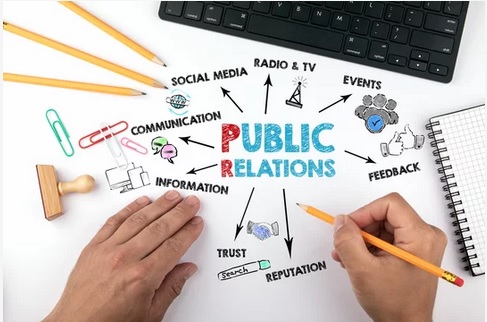The public relations industry is vast and complex, employing some 60,000 people and bringing in a fee income of nearly $9 billion in 2010, according to The Holmes Report 2011 Global Rankings.
It’s also perceived as a little, well, fluffy. Usually the first budget to be cut in a crunch, public relations deparments suffer more of an image problem than, say, finance or legal. Now, I’ve worked in public relations for more than two decades, and have worked with some incredibly smart, strategic professionals who earn their salary every day. But the image of PR as a somewhat soft gig persists. I had a job at a PR agency in the mid-90s where I attended cocktail receptions two out of five nights a week. My parents and friends had the entirely understandable impression that all I did was go to parties. This was at least partly true. It was also true that it was a high-stress job. We were expected to be on call 24/7, often worked 60-hour weeks and lived in fear of a client calling to say “why wasn’t I in the LA Times today?” No wonder we were guzzling white wine at those cocktail parties designed to showcase clients.
As an industry, public relations is more open to generalists than most. At the entry-level, what you studied in school is often less important than whether or not you are an articulate writer and speaker.
However as I progressed through six different PR jobs and lots of networking, I noticed that the PR person as a genus has several distinct species, some marked by innate traits, others by their environments. Tongue firmly planted in cheek, I note five of them here.
1. The Politician.
Hand extended for a shake while he’s still two feet away, the Politician is what most people think of when they think of public relations. He’s got great eye contact, remembers your name (or at least he read your nametag without you catching him). He’s friendly, warm and engaging when you can catch him, but he can be hard to track down. What You Hire Him For: his contact list. Tagline: “Let me connect you with…” Favorite PR tool: lunch. Hates: sitting at his desk.
2. The Extrovert.
The Extrovert takes her natural affinity for other people and leverages it into a fulltime career in public relations. She can work the room almost as well as the Politician, though she lacks his ruthlessness. She loves to talk and share ideas, so publicity and social media are natural extensions of herself. What You HIre Her For: her enthusiasm and energy. Tagline: “We’ve got a great event/product/cause coming up…” Favorite PR tool: social media. Hates: writing.
3. The Cynic.
The Cynic has little tolerance for hypocrisy, but he’s also more than willing to help you craft a message that puts you in the best light if he believes in you, your organization or cause. Many journalists-turned-PR-people fall into this category, assuaging fears of “selling out” by working in the public interest. Best asset: an inside track to the mind of a journalist. Tagline: “Here’s how this will play out.” Favorite PR tool: written opinion piece in print media. Hates: talking points.
4. The EMT.
Search warrants served at the office? SEC on the phone? Dial 911 in your PR crisis and you get the EMT. Usually working for a PR agency that specializes in crisis management, she is the on-call professional ready to do media training at midnight and draft your apology statement. Best asset: decisiveness. Tagline: “What you’re going to do is…” Favorite PR tool: the exclusive interview on a friendly news outlet. Hates: saying no comment.
5. The Conscience.
He believes in corporate citizenship and sees it as his job to not only listen to his organization’s customers or stakeholders, but also to be their advocates. The Conscience is the subject of many PR “best practices” case studies, for urging companies to do the right thing despite financial or legal risks. Best asset: deep understanding of public perception. Tagline: “I don’t care what Legal says…” Favorite PR tool: grants and sponsorships to worthy causes. Hates: obfuscation.
These five species are only a handful of the many that populate this large and growing industry. Can you think of any more? Let me know!





0 Comments